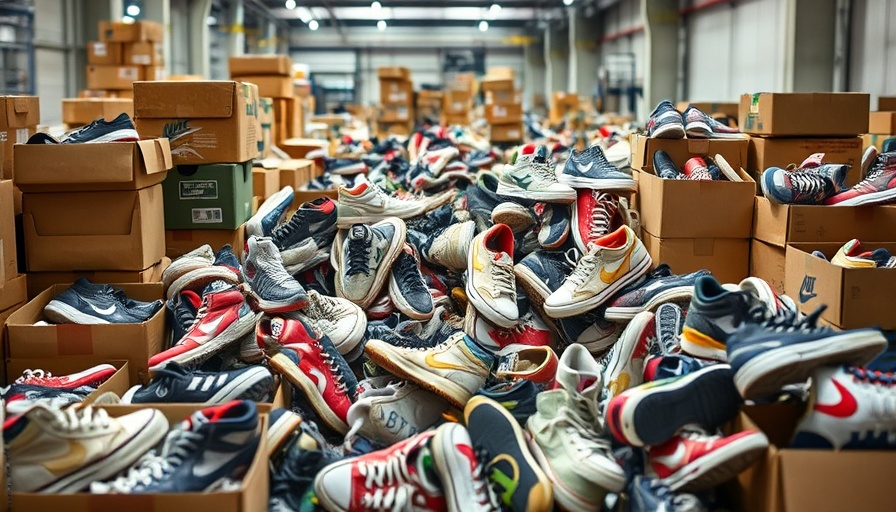
Transforming Waste into Opportunity: Sneaker Impact’s Vision
In Miami, a unique endeavor is turning discarded sneakers into a vehicle for social change. The company Sneaker Impact has developed an effective recycling model that not only addresses the issue of waste but also creates opportunities for microbusinesses in developing countries. As founder Moe Hachem highlights, the global need for footwear in places like Haiti and Guatemala underscores the importance of responsible consumption and sustainability.
Runners Unite for a Greener Future
At locations like the Brickell Run Club, runners are encouraged to drop off their used sneakers, contributing to a movement that emphasizes recycling over waste. Frankie Ruiz, the club's founder, notes that many avid runners change their shoes every few months, generating a steady supply of donated footwear. This grassroots initiative plays a crucial role in channeling resources to those who need them most while alleviating the burden on landfills.
Creating Impact: The Journey of Reusable Sneakers
Sneaker Impact processes over a million shoes annually, sorting them into categories of reuse and recycling. Shoes deemed reusable are sent abroad, where they find new life in local markets, helping to stimulate economic activity. Hachem stresses the dual benefit of this approach: reducing local waste while fostering small business growth in timelines less fortunate. The concept that footwear can serve as a form of transportation in developing nations is a powerful reminder of the global interconnectedness of resource management.
Beyond Sneakers: A Model for Sustainable Business
While many companies focus on production, Hachem’s goal with Sneaker Impact is a sustainable and environmentally friendly model. He aims to inspire a shift in how businesses operate, emphasizing the need for collective responsibility in reducing our ecological footprint. The products made from non-reusable components—such as mats and flooring—prove that even in recycling, innovation can flourish.
Why Sneaker Impact Matters Now More Than Ever
The urgency for solutions like those provided by Sneaker Impact cannot be overstated. With an increasing global population and growing concerns about waste management, the initiative serves as a working model for others to replicate. As Hachem states, 'There is no planet B,' making it imperative for businesses to evolve towards greener practices.
In conclusion, as you consider your own consumer habits, think about the lifecycle of your purchases. By choosing to participate in recycling programs or supporting sustainable businesses, you can contribute to a healthier planet and help those in need. Now is the time to engage with community efforts that not only protect the environment but also uplift economies worldwide.
 Add Row
Add Row  Add
Add 




Write A Comment